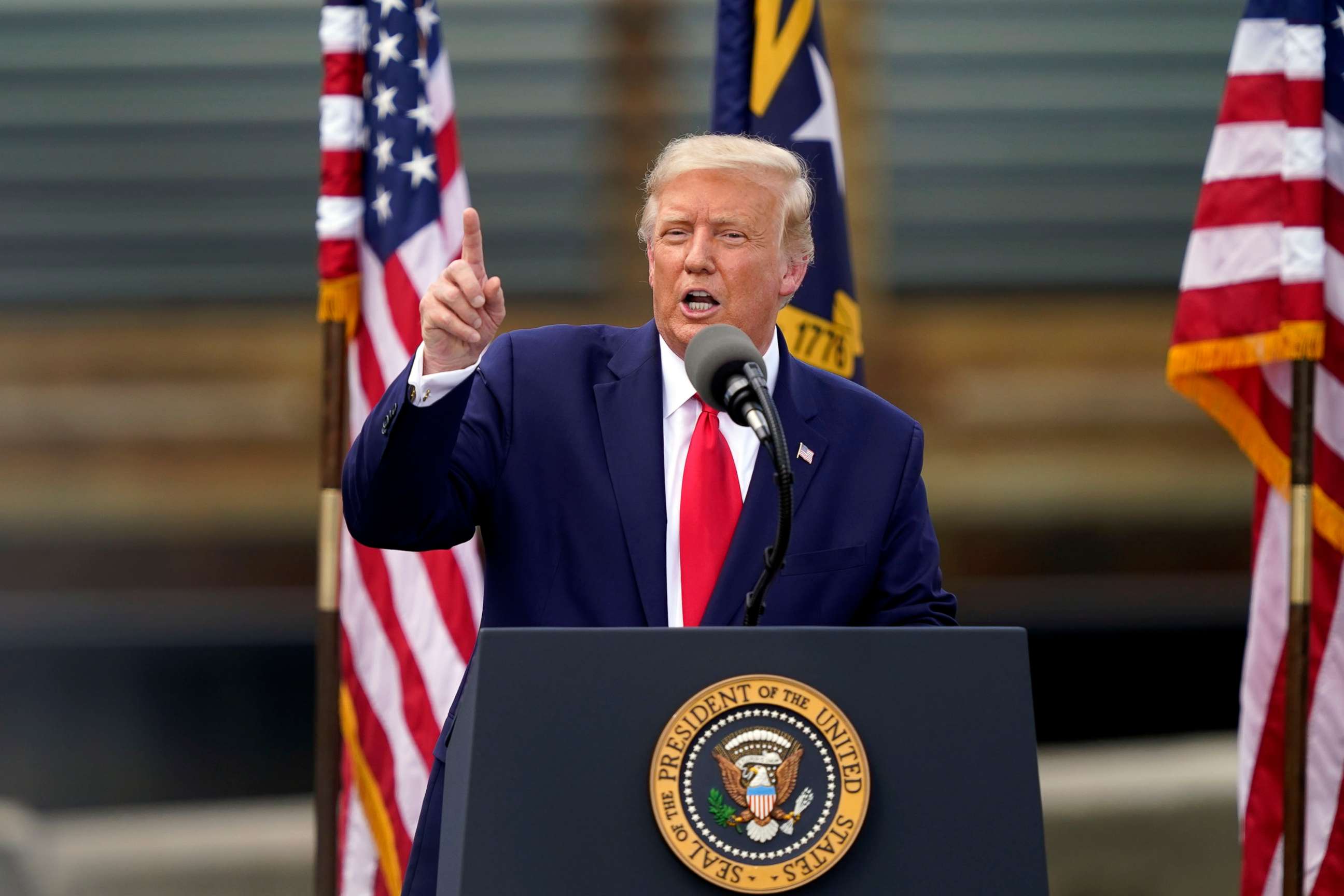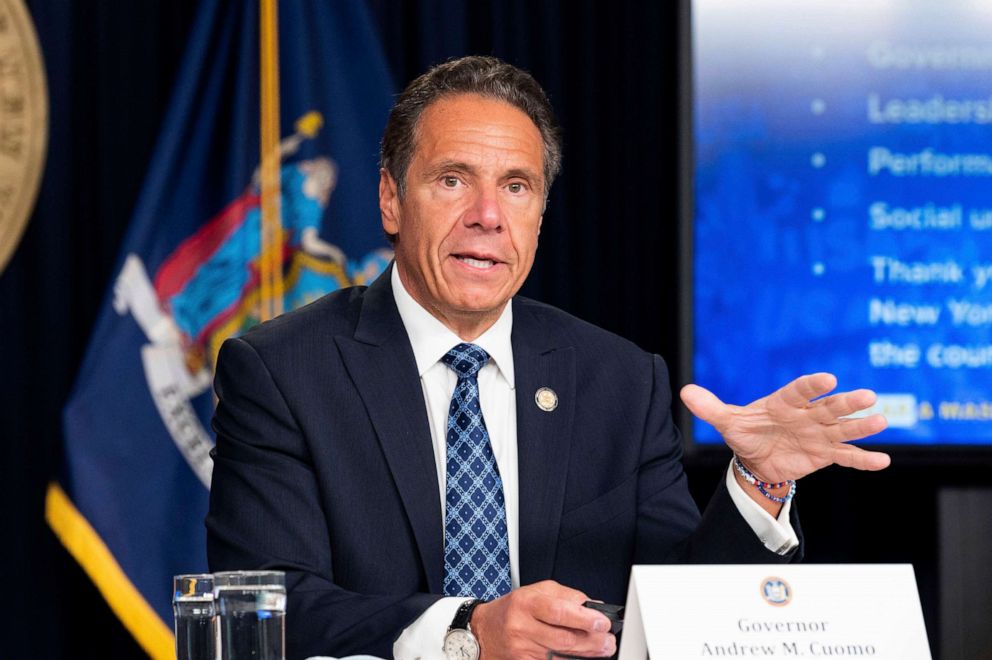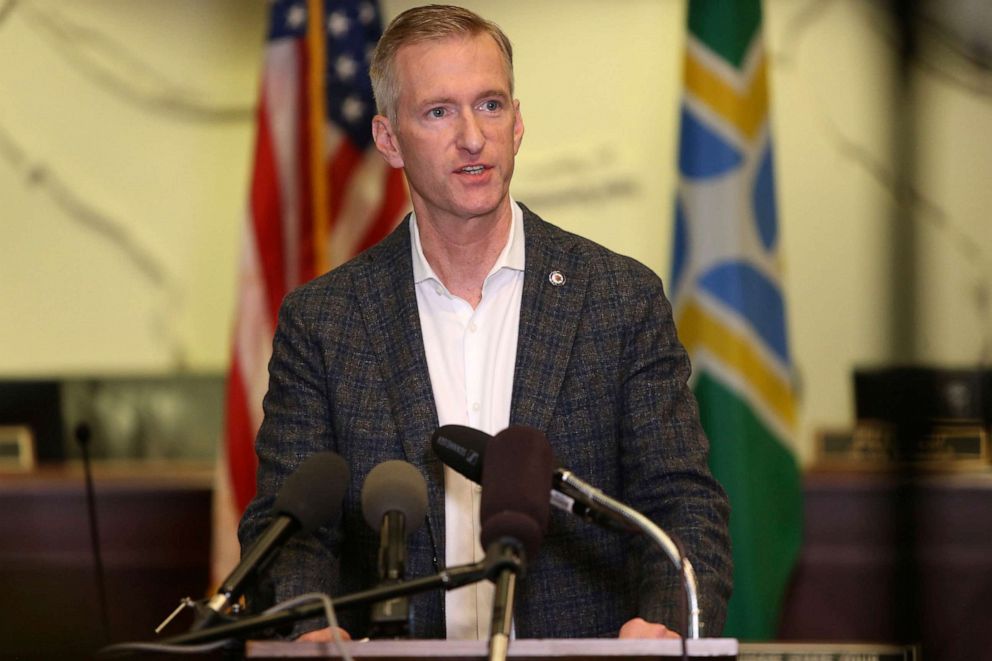Trump quickly challenged on threat to cut funding to Democratic-led cities
Democratic mayors vowed a legal fight.
Democratic mayors on Thursday challenged President Donald Trump's threat to cut federal funding to their cities by ordering administration officials to identify money that flows to what he called “anarchist jurisdictions” that have seen violent protests in recent months amid calls for racial justice.
A memorandum ordering the review, issued Wednesday, specifically singled out Washington, D.C., Portland, Seattle, and New York.
Experts called Trump's threat legally questionable.
The move comes as the president is trailing in the polls to his Democratic opponent Joe Biden and is looking to frame the election, now two months away, in terms of “law and order,” while also shifting attention away from scrutiny over his handling of the coronavirus pandemic.

The president’s authority to actually carry through on the threat was quickly countered, as the targeted cities have already vowed to mount a legal challenge and the Democrat-led House Appropriations Committee said the order violated Congress' role in allocating federal dollars.
"Instead of doing his job and helping heal our nation, President Trump is once again stoking division in search of political gain," Evan Hollander, a spokesperson for the committee's chair, Rep. Nita Lowey, D-N.Y., said. "This order intrudes on Congress’ power of the purse, would never stand up in court, and is nothing more than a distraction from the fact that Americans are less safe under the Trump administration."
Federal funding flows to cities in a variety of ways, including law enforcement and transportation and infrastructure projects. Much of the funding that goes to cities is directly appropriated by Congress, raising questions about Trump's ability to redirect the funds.
Asked which authority the president was relying on to potentially withhold funds, the White House did not say.
"We believe that what we will do will be lawful within the bounds of the law," White House press secretary Kayleigh McEnany said during a press conference Thursday, without citing any specifics. Later, she added, "We believe that we are in the right here."
The mayors of the four cities targeted by Trump on Thursday issued a joint statement saying the move was "unlawful, unconstitutional and will be undoubtedly defeated in court."
“Our cities, and the millions of Americans who we represent, are not President Trump’s political pawns," the mayors wrote, adding: "President Trump needs to wake up to the reality facing our cities—and our entire country—and realize he is not above the law.”
Portland Mayor Ted Wheeler, a Democrat, called the memo "a new low, even for this president," noting it singled out progressive cities with Democratic mayors.
"He continues to believe that disenfranchising people living in this country to advance his petty grudges is an effective political strategy," Wheeler tweeted Wednesday. "The rest of us know it is dangerous, destructive, and divisive.""
New York Gov. Andrew Cuomo reacted angrily to the president’s threat to cut funding to New York, suggesting that the president would face violence if he attempted to walk down the streets of New York City following his threat.

“He better have an army if he thinks he’s gonna walk down the street in New York. New Yorkers don’t want to have anything to do with him,” Cuomo said in a press briefing called in reaction to the president’s order. “He can’t have enough bodyguards to walk through New York City, people don’t want to have anything to do with him.”
Responding to Cuomo’s comments and his allusion to violence, McEnany sought to turn the comment on its head by saying it amounted to an admission by Cuomo of his failure to secure New York’s streets.
“It’s not often you hear a governor describe in vivid control who he’s lost control of his state, but there you have Governor Cuomo say you can't come to New York without an Army. Well, I guess that's the case when you have more than 1,000 shootings before Labor Day and a 277% increase in shootings in a one-month period over the year prior," McEnany said on Fox News. "It is very rare you hear a Democrat governor nakedly admit to failure. And that is what Governor Cuomo has just done for us.”
Trump issued the memo on the same day that his Democratic opponent for the presidency, former Vice President Joe Biden, spoke in Delaware about the coronavirus pandemic, accusing the president of mishandling the crisis. In months of polling, most Americans have said they disapprove of the wTrump has for months faced disapproval for his handling of the crisis in recent polls.
Biden this week also took Trump to task for his response to the shooting of Jacob Blake, a Black man police shot in the back seven times in Kenosha, Wisconsin, last month, and failure to condemn violence committed by his own supporters.

In recent weeks, Trump has attempted to distract from the pandemic and present himself as tougher on issues of law enforcement and crime. Wednesday's memo fit into that focus.
Sam Berger, who served as a senior official at the Office of Management and Budget during the Obama administration, said the memo amounted to "a campaign document."
"If the Trump admin[istration] tries to restrict funding on this basis, they will immediately be sued and almost certainly lose in court," Berger tweeted
The president’s latest attempt to cut federal funding to the Democratic cities drew parallels to the president’s longstanding threat to cut off federal funding to so-called sanctuary cities that have angered the president by not cooperating with federal immigration authorities.
The administration has so far not been able to act on the president’s direction at sanctuary cities because of pending legal battles that have so far hampered the federal government’s ability to make good on the president’s threat.
ABC News' Benjamin Siegel contributed to this report.




